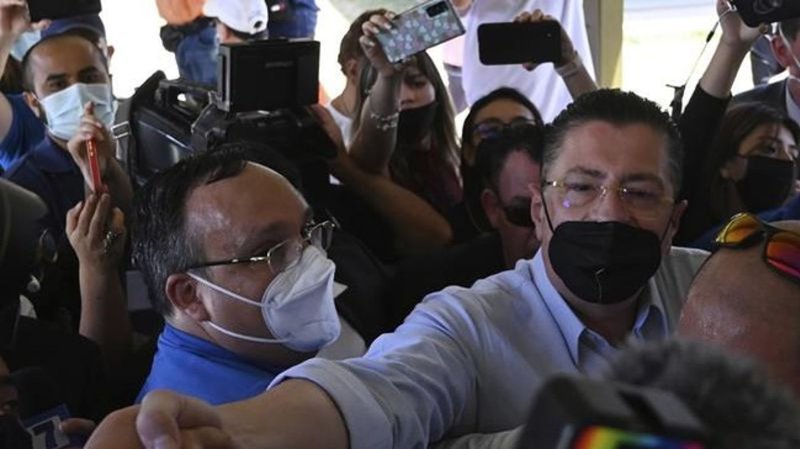
Ex-treasury minister wins Costa Rica’s presidency in runoff
SAN JOSE, Costa Rica (AP) — A former Costa Rican finance minister beat one of the country’s former presidents in a presidential runoff election Sunday, according to preliminary results from the vote that stirred little enthusiasm among voters, .
With 95% of polling stations reporting, Rodrigo Chaves led José Figueres Ferrer with 53% of the vote to 47%, the Supreme Electoral Tribunal said. More than 42% of eligible Costa Ricans did not vote.
Figueres accepted his defeat less than an hour after results began to come in as Chaves continued his surprising surge after coming in second place to Figueres in the first round of voting Feb. 6.
Figueres, who led Costa Rica from 1994 to 1998, represents the National Liberation Party like his father, three-time president José Figueres Ferrer. Chaves served briefly in the administration of outgoing President Carlos Alvarado and represents the Social Democratic Progress Party.

